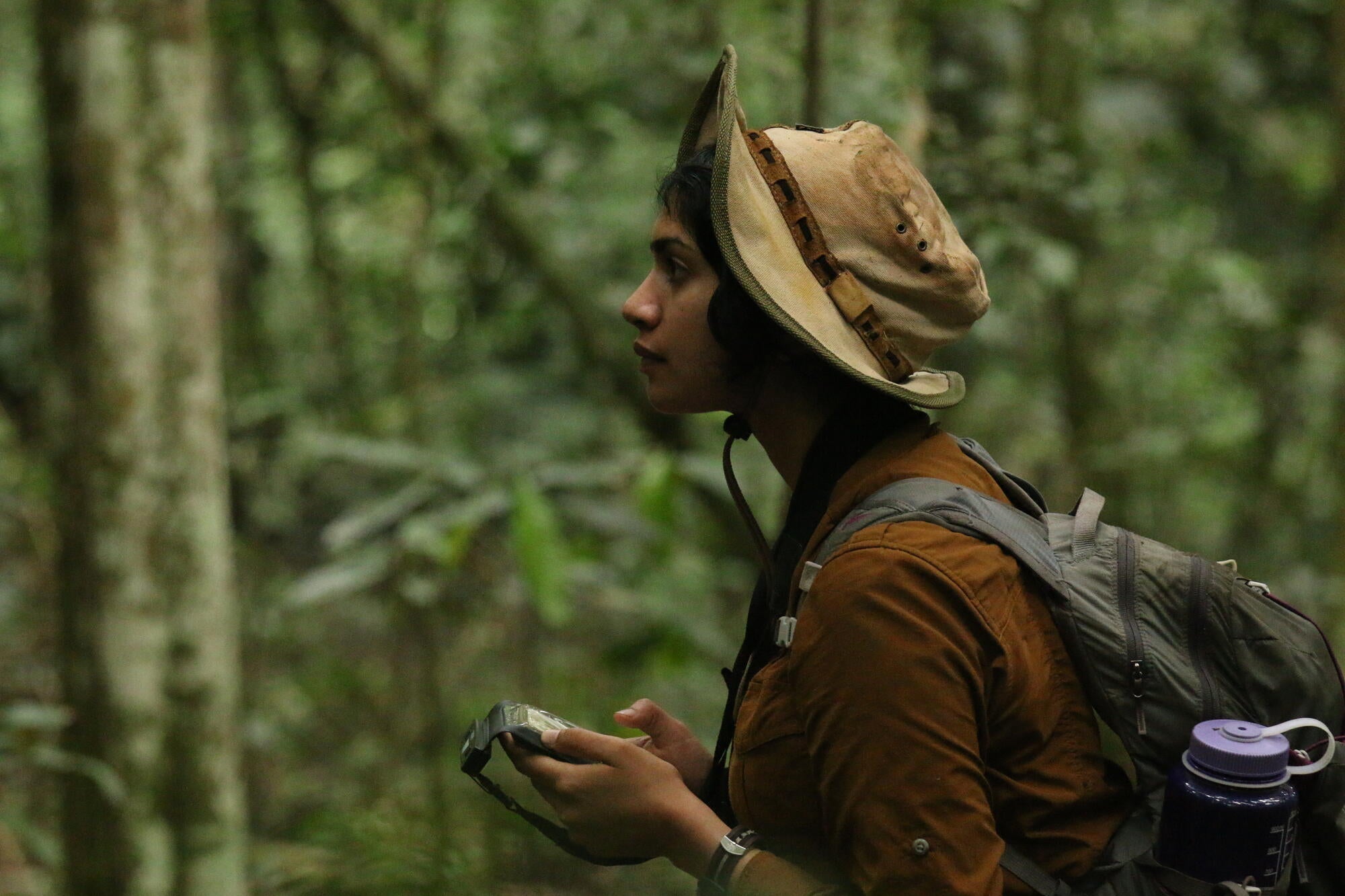Rachna Reddy is a biological anthropologist and primatologist. At Harvard University, she is a research associate in the Department of Human Evolutionary Biology, where she previously held a postdoctoral fellowship. She is currently an assistant professor of anthropology and environmental and sustainability studies at the University of Utah, as well as a research associate of the Natural History Museum of Utah. She co-directs the Ngogo Chimpanzee Project in Kibale National Park, Uganda.
Reddy’s research seeks to uncover the evolutionary basis for how and why social relationships shape human life. Through longitudinal studies of wild chimpanzees and bonobos—our closest living relatives—she examines how social relationships manifest, develop, and contribute to learning, status, health, survival, resilience, and reproduction across the lifespan. By integrating approaches from social, developmental, and clinical psychology into fieldwork, she aims to understand how chimpanzees and bonobos learn and achieve well-being throughout development. Her current work focuses on the tumultuous life stage of adolescence.
Her primary research takes place at Ngogo in Kibale National Park, Uganda, where she began working as a graduate student in 2013 and became co-director in 2024. She has also conducted comparative research on wild bonobos in the Kokolopori Bonobo Reserve in the Democratic Republic of Congo. Alongside these field programs, she employs experimental approaches and a broad comparative perspective to study the psychological mechanisms underlying social relationships in humans and other animals.
Reddy received a BA with Distinction in evolutionary anthropology from Duke University and a PhD in anthropology from the University of Michigan. She completed postdoctoral training at both Duke University and Harvard University, where she held a Mind Brain Behavior Postdoctoral Fellowship in human evolutionary biology and psychology.
Her research has been supported by the National Science Foundation, the National Geographic Society, the L.S.B. Leakey Foundation, the Nacey-Maggioncalda Foundation, Harvard University, the University of Michigan, Duke University, and the Duke Lemur Center.
